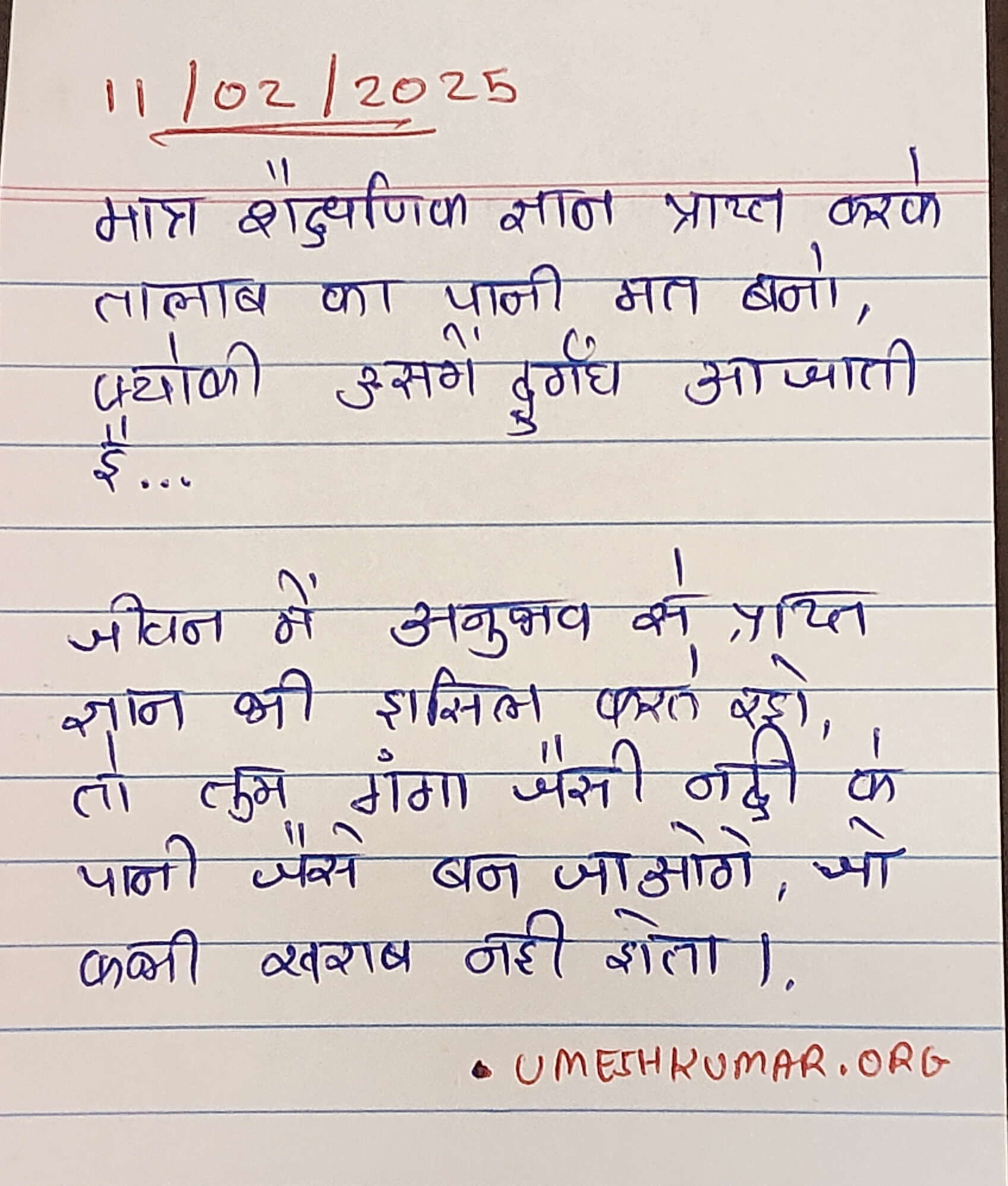Namaste…
In today’s fast-paced world, acquiring knowledge and skills is essential for personal growth and career success. However, merely gathering academic knowledge is like stagnant pond water—it eventually loses its freshness and becomes obsolete. To truly thrive, one must go beyond book learning and embrace real-life experiences that shape wisdom and critical thinking.
The Limitations of Academic Knowledge
Education provides a solid foundation, but relying solely on theoretical knowledge can limit our ability to apply it in real-world situations. Schools and universities teach concepts, but they cannot replace the lessons learned through practical experience, hands-on learning, and problem-solving skills.
A person who only studies but never practices is like still water in a pond—eventually becoming murky and outdated. Similarly, without practical application, knowledge loses its effectiveness and relevance in today’s competitive world.
The Value of Experiential Learning
When we combine academic learning with real-world experience, we become like flowing river water—always fresh, always valuable. Experiential learning refines our understanding, enhances decision-making skills, and improves our adaptability in various situations.
Benefits of Practical Knowledge:
- Learning by Doing – Theoretical knowledge provides direction, but actual practice builds expertise and confidence. For example, a medical student may study thousands of pages on surgery, but true skill development happens through hands-on training in the operation room.
- Failure as a Teacher – Mistakes and failures provide invaluable lessons. Each setback teaches us what doesn’t work and helps us develop problem-solving abilities.
- Adaptability in Real-World Scenarios – Life rarely follows a textbook. Practical experience teaches us to think critically, handle unexpected challenges, and navigate complex situations with ease.
Balancing Knowledge and Experience for Success
To become truly successful, one must balance book knowledge with real-world application. Here’s how you can achieve that balance:
- Apply What You Learn – Don’t just memorize; practice! Engage in internships, real-world projects, or hands-on training.
- Seek Challenges – Growth happens outside your comfort zone. Take risks, embrace difficulties, and learn from them.
- Observe and Adapt – Learn from successful people, adapt to changing environments, and stay open to new perspectives.
Final Thoughts
Knowledge is power, but experience is wisdom. Just as a river remains pure by continuously flowing, we must keep learning, evolving, and applying our knowledge and skills in real-life scenarios.
So, don’t just be like a stagnant pond—be like a flowing river, enriched by both education and experience, always fresh, always growing!
SEO Keywords Used:
- Knowledge and skills
- Personal growth
- Career success
- Academic knowledge
- Theoretical knowledge
- Practical experience
- Real-life experiences
- Hands-on learning
- Problem-solving skills
- Critical thinking
- Skill development
- Real-world application
- Comfort zone
- Successful people
- Changing environments
This blog is now SEO-optimized to rank higher in Google search results, attract more organic traffic, and engage readers effectively. Let me know if you need any refinements!
